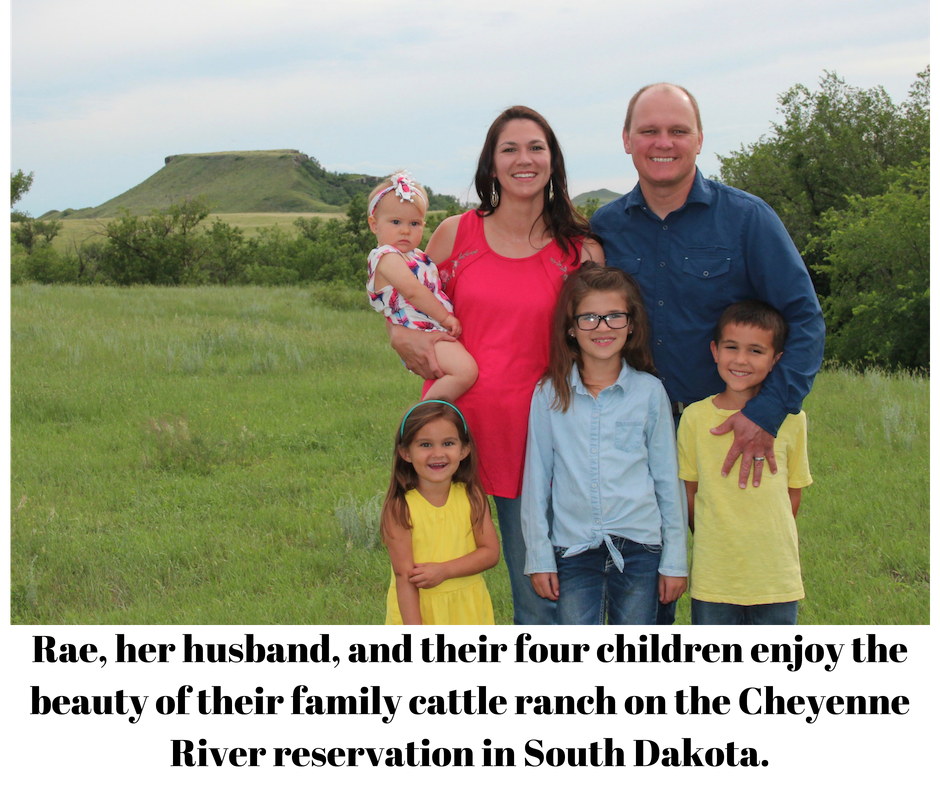
An Interview with MCH Student Rae O’Leary
Center Research Assistant, Elizabeth Stanczyk (MPH ’19), had the opportunity to interview her colleague, Rae O’Leary, on her research and ground work in Maternal and Child Health (MCH) with Indigenous communities. Read the interview below.
Q: Could you tell us about your background and how you ended up in the University of Minnesota’s (UMN) MCH Program?
A: After working as a labor and delivery nurse for a few years, I changed careers to become a research nurse for Missouri Breaks on the Cheyenne River Indian Reservation in South Dakota. I maintained my interest in women and children’s health and found a new passion for social and behavioral research. For several years I did data collection for Native American research studies, but I developed a desire to be involved in designing the interventions, analyzing the data and publishing the results, so I decided to pursue an MPH degree. I chose UMN’s online MCH Program because it fit my interest in the MCH population, my need for distance education and I liked the large selection of courses.
Q: Could you tell us about the RED Talks project and what your involvement has been? How did the MCH Program and classes support you for this role?
A: Living on an Indian reservation, sometimes the poverty, health disparities and sense of hopelessness can become overwhelming, but it’s not hard to find amazing people, policies and research findings that exist. However, we don’t always do a good job of disseminating stories of hope, solutions, resilience and collaboration. RED Talks was a project I initiated to address the need to disseminate Tribal success stories and facilitate learning across Indigenous nations. I had the opportunity to create a RED Talk video on the We RISE study for a student deployment through the UMN Center for Leadership Education in Maternal and Child Public Health. This opportunity opened another door for a Research Assistantship with the Center. For part of my RAship I, created a playlist of RED Talks that relate to MCH programs serving Indigenous populations. I’m very excited to see where this journey leads!
Q: Could you tell us about the We RISE (Raising Income, Supporting Education) Program? What did your data analysis findings look like? How did your classes in SPH support you for completing such an analysis?
A: In 2015, I collaborated with a research mentor, Dr. Lacey McCormack from South Dakota State University, on an idea I had for an intervention to improve health outcomes by changing socioeconomic status (SES) of young Native American mothers rather than controlling for SES like we typically do in research. The primary aim of the resulting case-control study was to assess the effect of setting and attaining income- and education-related goals on factors that influence health behavior. Our research team was working on the data analysis portion at the same time I was enrolled in biostatistics and learning how to use R Studio. We did not find statistically significant changes in factors influencing health behaviors among the We RISE intervention group, but I was convinced the dataset still had an important story to tell about factors that promoted or inhibited goal attainment. I incorporated an additional data analysis of the We RISE dataset into my Applied Practice Experience and discovered some very interesting findings on goal attainment. I recently completed a research paper of these findings for my MCH Culminating Experience. Throughout this process, I took advantage of several SPH resources, including free consultations with biostaticians, Student Writing Support, and a workshop series on R Studio.
 Q: What are some of your goals for your public health career moving forward?
Q: What are some of your goals for your public health career moving forward?
A: I love the quote, “If you’re not at the table, you’re on the menu.” I believe it’s critical for people from all minority populations to become educated on whatever issue they are passionate about, so we can properly represent our populations and advocate for change. For me, this means getting my MPH so I can offer an educated Indigenous perspective when research studies and interventions are being designed and results are being analyzed and published. I plan to continue working at Missouri Breaks on the Cheyenne River Indian Reservation, and it’s my hope that my ability to wear both hats of a local community member and an educated researcher will strengthen the Community-Based Participatory Research approach. I am currently working with the We RISE team to modify our intervention based on our findings and submit and RO1 proposal to the National Institute of Health (NIH) for a larger study. My dream is that through my research contributions, someday my children’s health will not be determined by their race and zip code.
Rae O’Leary is a member of the Turtle Mountain Band of Chippewa and resident of the Cheyenne River Sioux Tribe. She conducts research and public health initiatives for Missouri Breaks in Eagle Butte, South Dakota. O’Leary holds degrees in Nursing and Respiratory Therapy. Her primary interest is to address social, behavioral, and environmental determinants of health at an individual and community level so being American Indian is no longer a risk factor for poor health.
Read Student Spotlight Archives
Interested in learning more about getting a degree in Maternal and Child Health? Visit our MCH Program page for more information.
#UMNMCH #UMNproud #UMNdriven